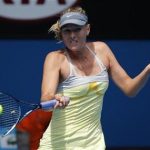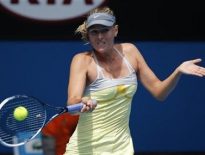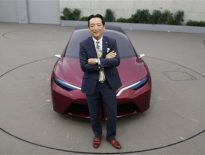(Reuters) – A month after President Hugo Chavez left Venezuela for a fourth cancer operation, his commanding control over the government is slowly moving into the hands of an unlikely trio of protégés who may shape the future of the oil-rich nation.

Chavez’s cancer has left him in serious condition in a Cuban hospital and created a leadership vacuum after 14 years of cult-of-personality socialism that has made him a dominant figure in Latin America.
Given a micro-managing style that put an inordinate number of decisions in his hands, and his unique ability to control an alliance that ranges from union activists to military officers, that leadership is now being shared out among his top allies.
Vice President and anointed successor Nicolas Maduro, Congress chief Diosdado Cabello, and Oil Minister Rafael Ramirez – a political heir apparent, a soldier and an energy boss – are emerging as the architects of a transition to post-Chavez rule.
“I do not think that within the party there will be a single heir that can fill the president’s shoes,” said Heinz Dieterich, a Mexico-based sociologist and former Chavez advisor who split with the president over how to create a theoretical underpinning for his “21st century socialism.”
The three leaders’ gradual assertion of influence signals they are in a test run of how to share responsibilities in the absence of Chavez, who was unable to swear in for a new six-year term on January 10 after being hit by a severe lung infection linked to his operation in early December.
The balance of power between the three – who have not always gotten along – and their ability to work together will be crucial in determining whether Venezuela continues on Chavez’s path of radical socialism or evolves toward a moderate Brazil-style leftist administration.
Outraged critics say Venezuela is rudderless and subordinated to the whims of Cuba, where Chavez is receiving treatment under the shroud of state secrecy. The troika gathered there on Sunday to meet with Cuban President Raul Castro.
“We know which commander they’re taking orders from,” said opposition legislator Maria Corina Machado.
If Chavez left office, new elections would be called within 30 days, with Maduro running as the Socialist Party candidate. But the government has provided only minimal details of Chavez’s condition, with no concrete evidence that he is even conscious.
Authorities say there is no need for a formal medical review to determine if he is fit to continue governing, and they appear willing to leave him in charge of the country – perhaps in a vegetative state – for weeks or even months.
The transition is being closely watched by oil companies itching for greater access to the world’s largest crude reserves, as well as by foreign investors who have bought Venezuela’s high-yielding and widely-traded bonds.
Maduro, an ex-union activist and former bus driver turned foreign minister and now president-in-waiting, has Chavez’s blessing as the ruling Socialist Party’s future leader.
Seen as a moderate given to dialogue, he has already made initial contact with Washington after years of frayed ties with the United States. He could ease the country’s polarization by mending fences with the opposition, but risks the wrath of radicals if he moves too quickly.
SOCIALIST TRIFECTA
Cabello, a former soldier who took part in a failed 1992 coup that first made Chavez famous, has much greater sway than Maduro among a crucial military faction that controls several key ministries and a swath of state governorships.
As president of Congress, he would be in line to lead a caretaker government if Chavez were to die or step down – making him a potential king-maker. He is seen as more intransigent than Maduro, and critics liken him to a thug. One opposition leader this week flippantly referred to him as “Al Capone.”
Dieterich has said he believes Cabello would betray Chavez in much the same way that Soviet dictator Josef Stalin consolidated control over the Communist Party even though revolutionary leader Vladimir Lenin before dying had left instructions that Stalin should be removed.
Chavez’s allies have furiously criticized Dieterich’s view and Maduro and Cabello make repeated displays of unity, hugging uncomfortably during televised broadcasts and shooting down rumors of rivalry, to sometimes awkward effect.
“People are worried that Diosdado and I are killing each other,” Maduro boomed at a rally the day Chavez missed his inauguration. “We’re more united than ever. We’re killing each other with love for the people and loyalty to Chavez.”
Ramirez, who also runs state oil company PDVSA, has started to exert his own influence with adulatory declarations of support for Chavez and vows that oil workers will be forever faithful to the president’s self-styled revolution.
He is a power broker because of his control over the petrodollars that finance Chavez’s much-loved social programs. He also heads a massive campaign to build homes for tens of thousands of families that helped Chavez win re-election.
“PDVSA belongs to the people and will remain in the people’s hands,” he told a meeting last week of union officials and company directors. “Being loyal to President Chavez means being loyal to what he says and does. Now more than ever there is unity among the revolutionaries.”
Ramirez’s own views are often overshadowed by his fierce dedication to Chavez, though his years of experience negotiating with foreign oil companies may help him build bridges with the opposition if the political environment changes.
Though he has overseen some of the world’s most acrimonious nationalizations, he has also been able to win investment from energy giants when it was in the government’s interest.
Opposition leaders want much more information on Chavez’s condition and, if he is unable to serve as president, they say a caretaker must be named and new elections called.
Chavez’s team says he is recovering but the opposition insists Maduro, Cabello and Ramirez are preparing for a post-Chavez era if he is unable to return.
“It’s obvious a transition is in place. The question is, how long can it go on?” said local analyst Luis Vicente Leon.
(Additional reporting by Marianna Parraga and Enrique Andres Pretel in Caracas and Gabriel Stargardter in Mexico City.; Editing by Daniel Wallis and Kieran Murray. Desking by Christopher Wilson)





